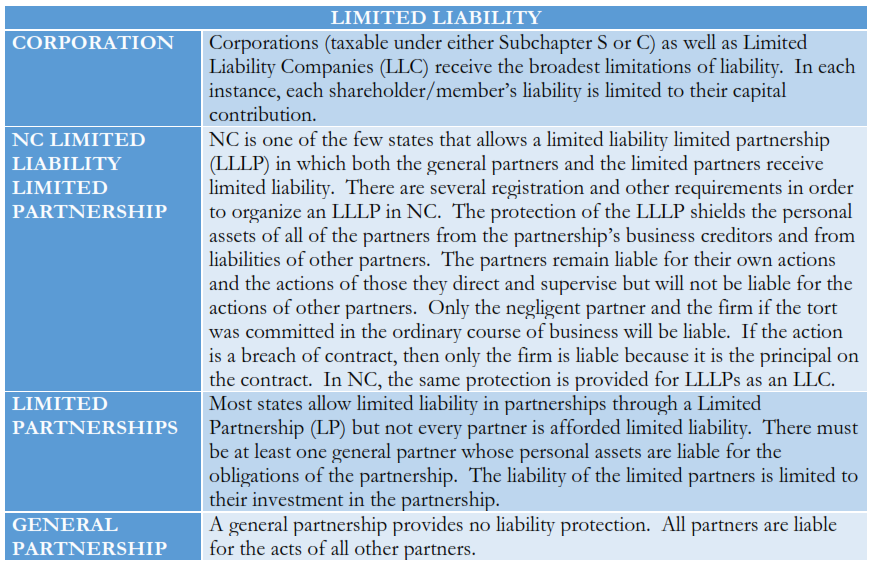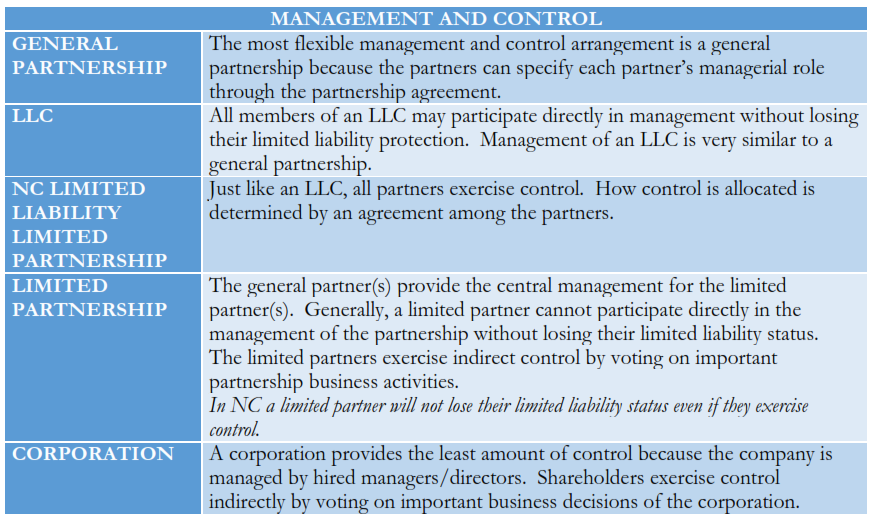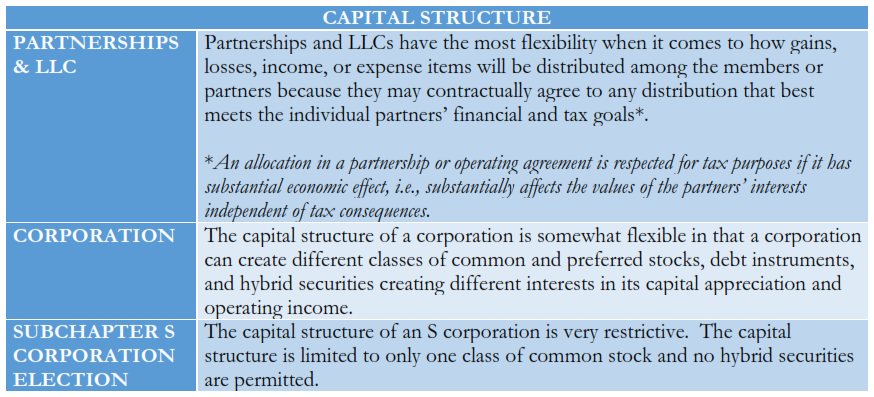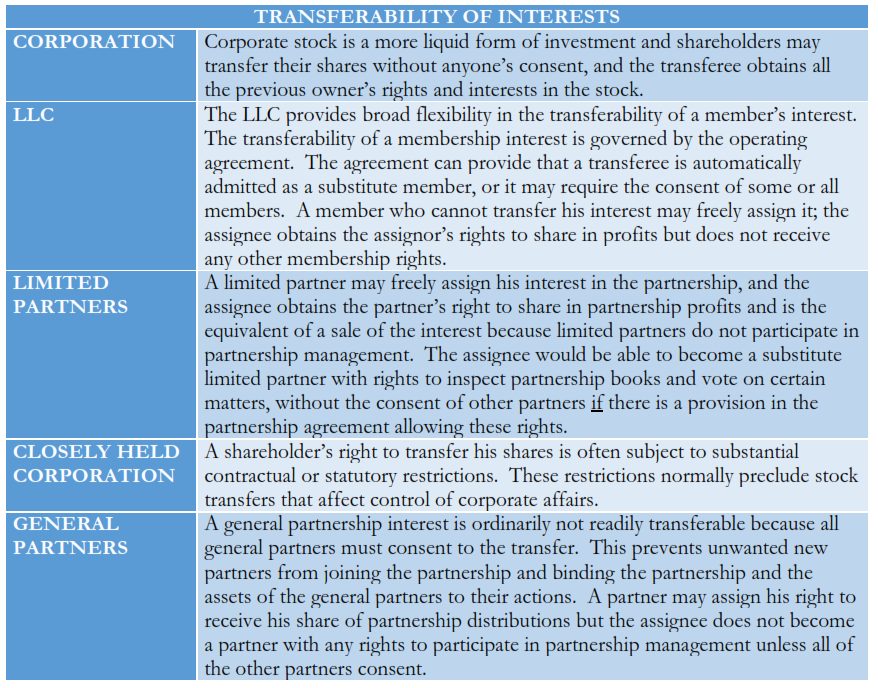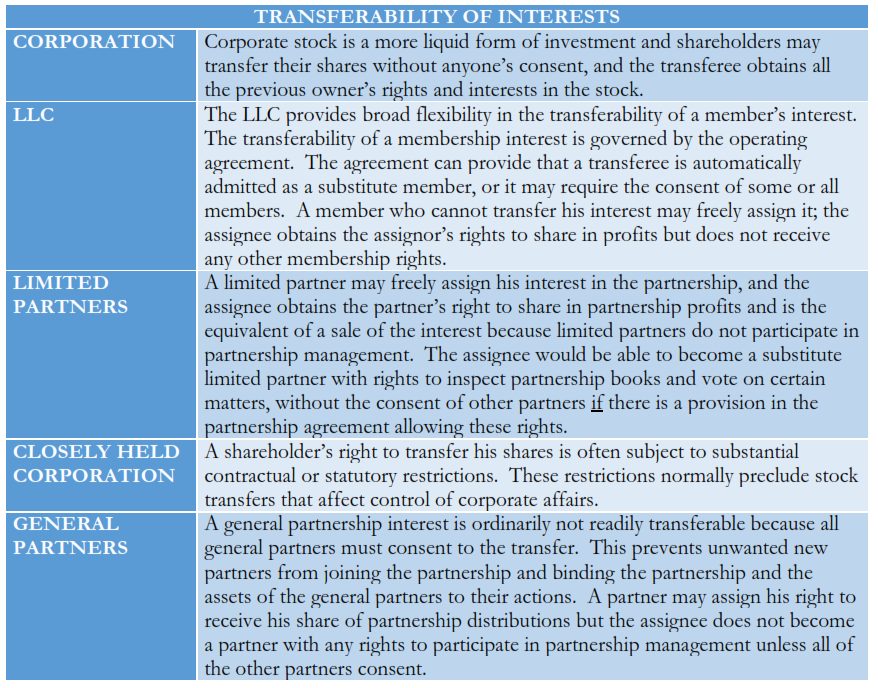
Both Subchapter K and S of the Internal Revenue Code (IRC) are pass-through tax structures in which the members of the entity are taxed for the entity’s income, gains, losses, and expenses on their individual tax returns. That is where the similarities end.
There are several differences discussed below that make Subchapter K seem more taxpayer friendly than Subchapter S. Much of the popularity of the LLC is attributable to the fact that LLCs offer limited liability to all investors combined with the more flexible partnership tax regime. In some situations, however, the goals of the business owners may be better achieved with an S corporation.
Subchapter S places very strict restrictions on the ownership and capital structure for S corporations. S corporations are limited to 100 shareholders (although members of a “family,” broadly defined, are counted as one shareholder), and they may not have more than one class of stock. Additionally, all shareholders much be individual U.S. citizens or residents and other corporations or partnerships cannot be shareholders of the company. Anyone can be a member or partner of an entity taxed under Subchapter K.
Partnerships and LLCs taxed under Subchapter K may make special allocations of income and deduction items, while shareholders of an S corporation must include corporate income and loss on a pro rata share basis. Thus, partners/members may agree to share certain income or deductions disproportionately, and the agreement will be respected for tax purposes if it reflects their economic business deal. Additionally, in most cases, partnerships and LLCs taxed under Subchapter K, can distribute appreciated property in kind without immediate recognition of taxable gain.
In a business with only a few owners, an S corporation may be the entity of choice because the flexibility of Subchapter K is not needed. S corporations are often used by owners that prefer to conduct their business as a state law corporation instead of a partnership or limited liability company because they are more comfortable with the corporate governance structure. S corporations are also often used by service providers to minimize their exposure to employment taxes. S corporations are not viable options in many situations – a business with foreign investors would not be able to make the S corporation election because foreign investors are not permissible S corporation shareholders. Additionally, many institutional investors (e.g., tax-exempt pension funds and charitable organizations) are discouraged by the tax system from investing in any type of active business that is operated as a pass-through entity. Venture capital funds, which provide a large source of capital for start-up companies, appear to be more comfortable using the familiar C corporation capitalized with several classes of stock, a structure not available in an S corporation.

For a complete analysis of the tax implications of C Corporations, Partnerships, and S Corporations click here for the Joint Committee on Taxation’s publication entitled “Choice of Business Entity: Present Law and Data Relating to C Corporations, Partnerships, and S Corporations.”
Contact us regarding your business law matter. Click here




 When you decide to start a business venture, there are a myriad of things to consider. You have possibly already chosen the purpose of your venture and what it is you are going to make, do, or sell. You have probably also played around with what to name your business. Now what? Where do you go from here?
When you decide to start a business venture, there are a myriad of things to consider. You have possibly already chosen the purpose of your venture and what it is you are going to make, do, or sell. You have probably also played around with what to name your business. Now what? Where do you go from here?
